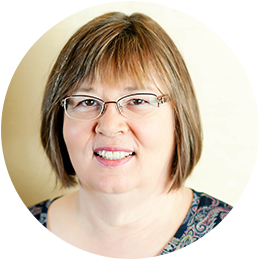
If you had a list of skills to develop for career advancement would it include a technical mindset? My list certainly wouldn’t but upon reflection it’s what drove me to roles with the ability to solve problems in new ways utilizing technology that didn’t exist at the start of my career.
What is a Technical Mindset?
Someone with a technical mindset is open-minded to new ideas and looks to technology to help solve problems and advance business processes.
Earlier in my career with VerityStream I often met people who were afraid that automation and the technology behind it would leave them out of work. What developing a technical mindset showed them was that new opportunities were presented.
For this topic, I wanted to get perspectives from both the industry and the solutions viewpoints and enlisted Rachel Purcell, Director of Regional Credentialing at Kaiser Permanente Northern California, and Chris Gann who is VerityStream’s Associate Vice President, Product Management.

Rachel’s path to credentialing started with a degree in industrial engineering which led to her first health care role as a management engineer. Today Rachel oversees a credentialing operation that provides services to 21 Northern California Kaiser Permanente facilities.

As Associate Vice President of Product Management, Chris is focused on the people, process and insights that drive VerityStream's product vision and roadmap. He earned his BA from Middle Tennessee State and has over 16 years in technology and product management experience. A native Tennessean, Chris lives in Nashville with his wife and two children.
Rachel, what is the value of a technical mindset in our industry?
To understand what is possible. Many large organizations have entrenched workflows and roles with decades of precedence. An open-minded, technical perspective can enable one to envision alternatives that will eliminate and simplify workflows.
To mitigate risk and ensure compliance. Understanding the technology that we rely upon can enable one to identify and mitigate risks – we can leverage software to mine for data gaps, and of course, automation is much less prone to error than manual processes.
For substantial cost savings. Most organizations are under leveraging technologies that they already own and license, while rote workflows abound. We may be paying for technology that is not fully utilized and compensating with brute force. A technical mindset can enable managers to restructure responsibilities so that team members can focus on more sophisticated decision-making based on their core competencies rather than being overwhelmed by minutiae, which could be eliminated or handled technologically.
Chris, what is the value of a technical mindset from a solutions provider perspective?
MSPs with a technical mindset can help accelerate new solutions earlier as they become available. Knowing how technical systems work can give you an advantage when it comes to getting early value out of a system and also in taking advantage of emerging solutions or technologies. Technology (and our industry!) moves so fast that those who can grasp more of the emerging trends and see what’s feasible, amidst all that’s possible, can really get things done.
Having a technical mindset coupled with interpersonal skills can also help you navigate relationships and build trust quickly with people who aren’t necessarily as familiar with your day-to-day or long-term needs. Finally, a technical mindset can help you mitigate risks, large and small. Any change introduces risk and technology is no different. Thinking about, and developing a more technical understanding of, how things work and how data flows can help you assess the risks that you are willing to take as well as those that you aren’t.
Rachel, how did having a technical mindset help you solve a problem?
To address the COVID-19 national emergency, we introduced an automated Disaster Privileging process to quickly redeploy our Medical Staff specialists within our 21 Hospitals in Northern California. One innovative feature was a scannable Credentials QR Code that was pushed to every credentialed provider's iPhone. The QR code was generated in a secure iPhone application that could be scanned by any staff member with a Company iPhone only when logged into our internal network. This technology allowed our staff to instantly validate the licensure and credentials of incoming volunteers and produced an automated log of those signing in for work shifts.
This concept started with an idea I had to replicate the electronic boarding passes issued by the major airlines that use a QR Code for validation. Fortunately, we had invested in developing a team of skilled technologists who programmed this new tool within a few weeks. This was a tremendous success for our providers and front-line staff, and we are looking at ways to further leverage this technology.
Chris, how has working with customers with technical mindsets advanced CredentialStream?
We truly believe that our best ideas come from our customers. With that in mind, it’s no exaggeration to say that some of our most powerful or ambitious projects have been done in partnership with customers. Having customers with a technical mindset can help us, as a vendor, find opportunities that we may not have seen before... both big AND small. Like many organizations, we work in an Agile software development model. Customers with a technical mindset often feel more comfortable with this iterative approach.
Rachel, what advice would you give someone to develop a more technical mindset?
Survey best practices and concepts worldwide that can be universally applied, like this for anyone managing processes and technology… Elon Musk said during a Starship Update Q&A session, “The tendency is to complicate things…” “The best part is no part. The best process is no process…” “The thing I’m most impressed with when I have the design meetings at SpaceX is what did you un-design? Un-designing is the best thing. Just delete it. That’s the best thing.”
Look for an opportunity to use technology to eliminate a task or problem. This can be as simple as learning and using a new function in your current software. Once you start, exploring ways to use technology to save steps will become contagious.
Thank you to Rachel and Chris for their insight and inspiration. Are you ready to emPOWER yourself by practicing and strengthening your technical mindset?
